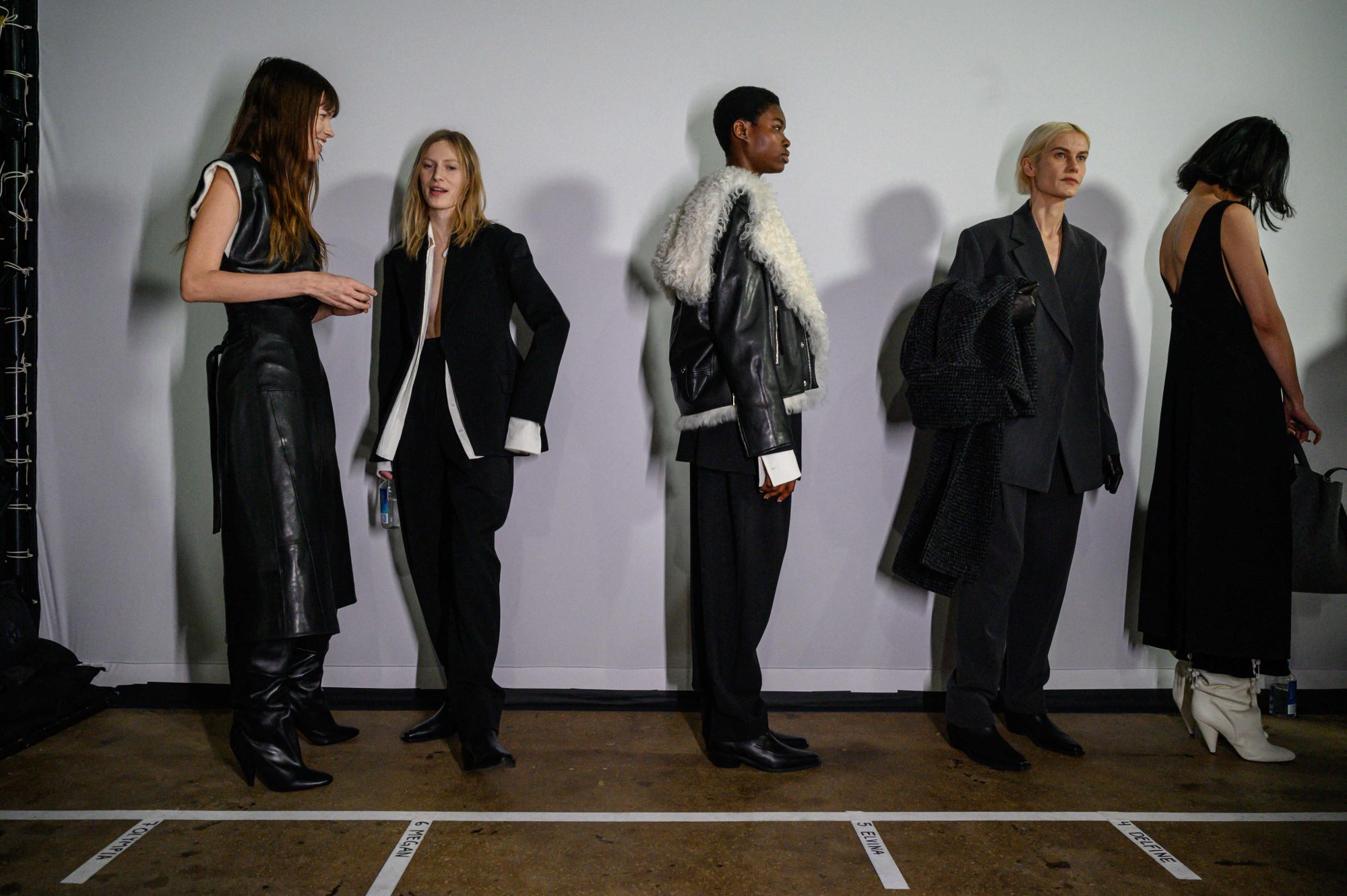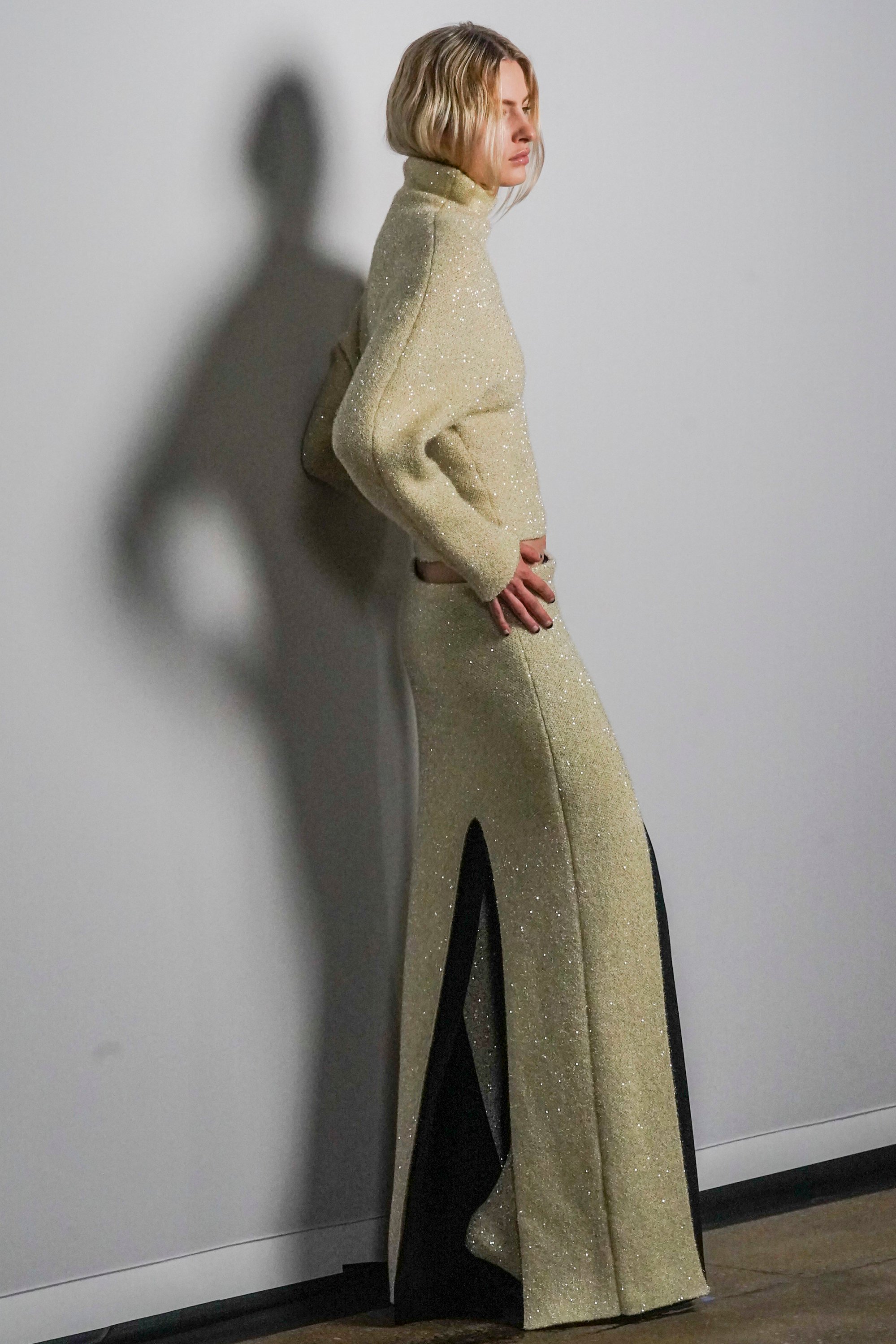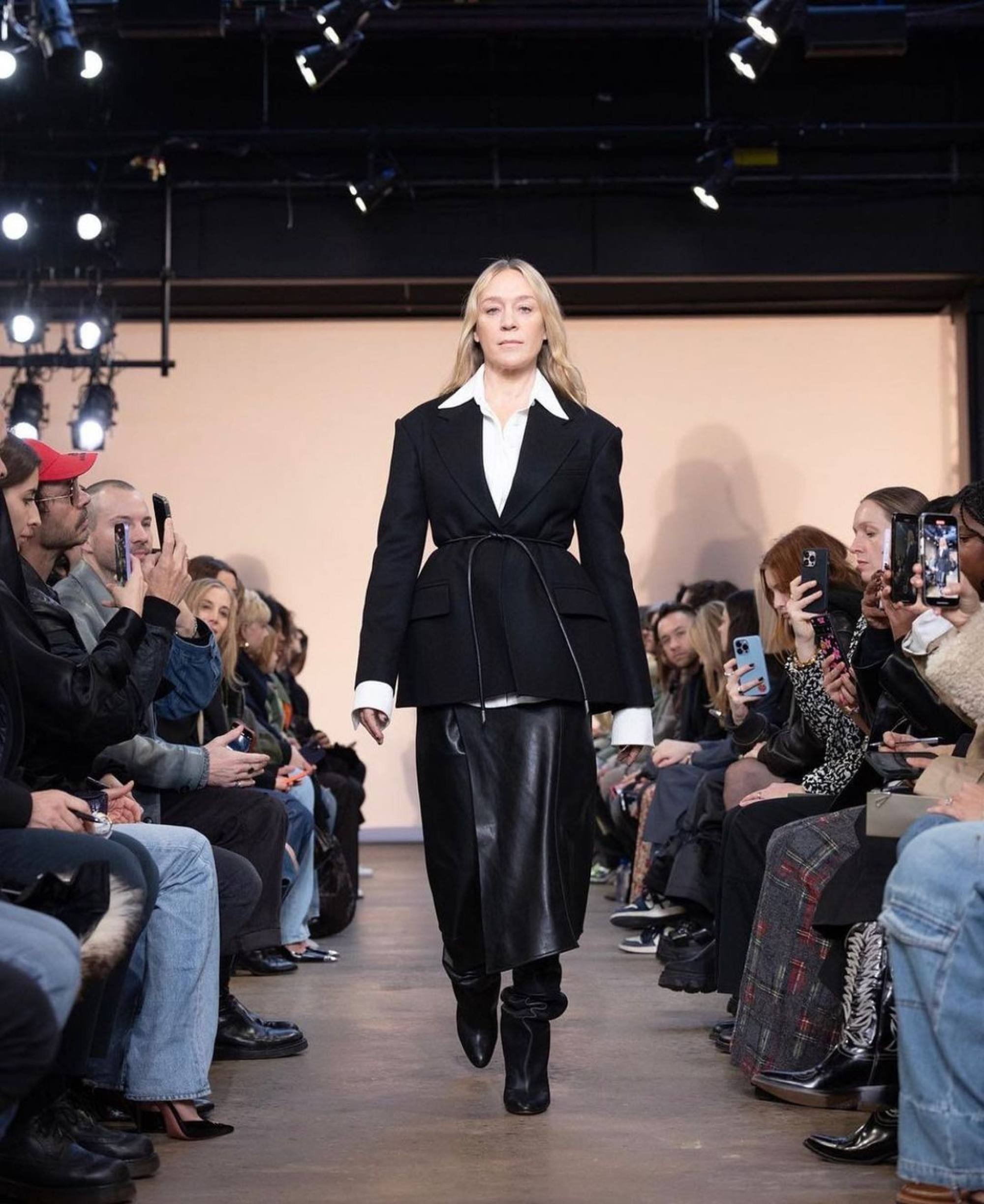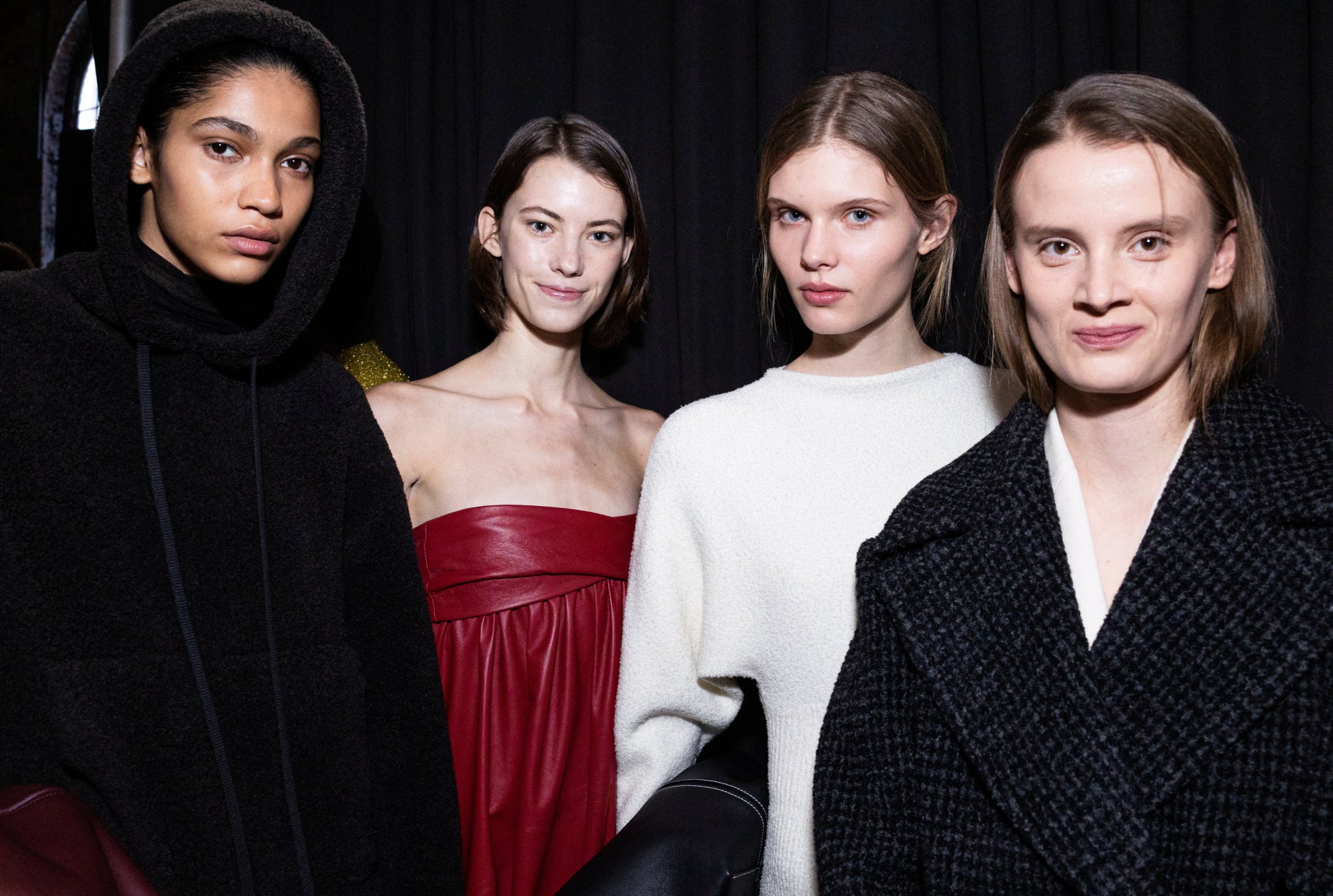New York Fashion Week 2023: Proenza Schouler’s latest show favours function over fantasy, while celebrating iconic women like Chloë Sevigny for its 20th anniversary


This year, designers Lazaro Hernandez and Jack McCollough said they broke with their typical creative process.
Most often, “we get wrapped up in like a narrative or a theme or a vibe”, Hernandez said after the weekend show.

“This season, we started with literally headshots of the women in our lives that we look up to and respect on a personal level, on a stylistic level,” he continued.
Those women included American actor Chloë Sevigny, who opened the show on February 11, wearing a suit and a long skirt of leather, a material used prominently in the collection.

“We’re tired of all this fantasy, and like, Instagram clothes,” Hernandez said.

The collection – clothing with character but less swagger – includes several relatively classic pantsuits and many below-the-knee skirts, accentuated with high boots, often in leather.
Still, Proenza has not abandoned sophistication.

One bright yellow suit featured a wide collar that stretched past the shoulder, while the flap of an asymmetrical dress fell along an arm.
The designers displayed that they know, with a light touch, how to transform a silhouette with subtlety.


He said Proenza’s new way of conceiving their clothes was appealing and freeing.
“Sometimes themes can be nice, and that you have a device to kind of tap into. But it’s also freeing to just get rid of it altogether,” McCollough said.

- On February 11, US fashion label Proenza Schouler celebrated its 20th-anniversary collection with pared-back, subtle designs, evolving from its previously avant-garde and conceptual shows
- Led by designers Lazaro Hernandez and Jack McCollough, the idea was to veer away from getting wrapped up in a narrative or theme, and to focus on the sophistication of women through pragmatism